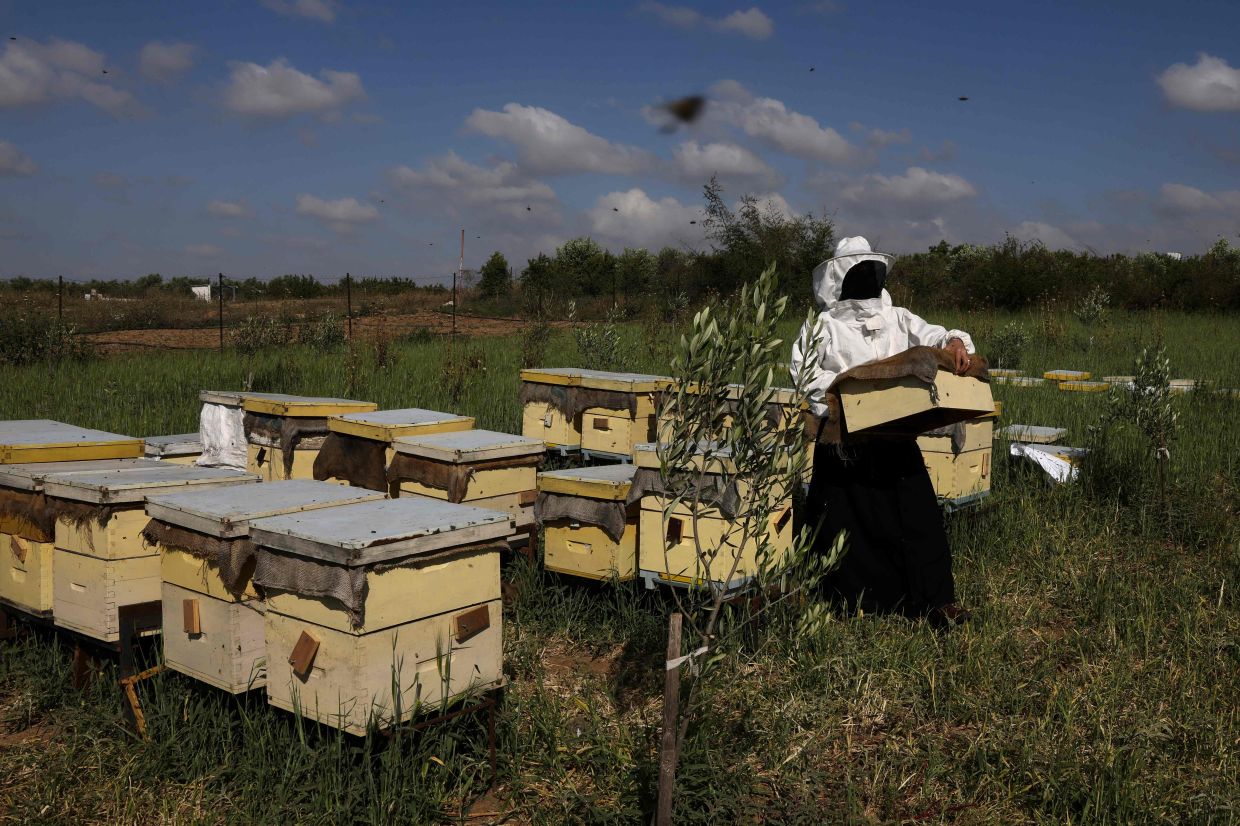Khoudair's bees provide her with a job and she is self-reliant. Photos: Mohammed Abed/AFP
In a field close to the Gaza Strip's restive frontier, apiarist Miassar Khoudair checks that her queen bee has survived five days of deadly cross-border fire between Palestinian militants and the Israeli army.
"The bees die from the gases, the rockets and dust as a result of the war," said the 29-year-old, dressed in a protective white bee suit.
World Bee Day – which aims to raise the profile of these vital pollinators – was on May 20 and a few days before that, Khoudair returned to her colony just a few hundred metres from the border.
In the latest escalation in hostilities between Israel and Gaza's militant groups, Khoudair was unable to access the hives amid outgoing Palestinian rocket fire and incoming Israeli airstrikes, with three or four of the apiaries destroyed.
Despite the dangers, the frontier's farmland offers some of the only areas in Gaza's densely populated urban environment suitable for beekeeping.
"We always put them in border areas, because there are lots of trees and wild plants, and there aren't many buildings or overcrowding," she said.
The territory is home to some 2.3 million people. Cross-border trade was halted until a ceasefire took hold recently and the fighting also damaged an estimated 600 dunams (0.6sq km) of crops.
The value of losses to beehives, poultry farms and livestock reached US$225,000 (RM1.03mil), according to the Hamas-run government's media office.
'I rely on myself'
The conflict halted daily life and prevented Khoudair from selling honey at her store in a usually buzzing mall in downtown Gaza City.
Khoudair studied herbal medicine and as well as selling traditional eating honey, she also sells honey-based infusions to treat everything from problems of concentration to fertility issues.
"If the honey is of high quality, it's very treatable. There are some mixtures added to the honey, and here it treats childbearing," she said, without elaborating.
Khoudair started her business a few months ago after studying honey and herbal medicine in Saudi Arabia, she said.
"While I was in Saudi, I found they have the idea of honey, their love for honey, their interest in honey, as a remedy and a supplement on the table to my lunch," she said.
With 45% unemployment in Gaza, according to the International Monetary Fund, Khoudair's bees provide her with a job.
"It's a very beneficial project, and I rely on myself as a woman," she said.
Standing beside her colony after inspecting her hives – resulting in a few stings to her hands – Khoudair urged people beyond Gaza's borders to "care about the bees' produce".
"Honey is mentioned in the Quran, we take it therapeutically, not just in a nutritional way, and it's healthy and strengthened with vitamins," she said, above the drone of her bees. – AFP Relaxnews







